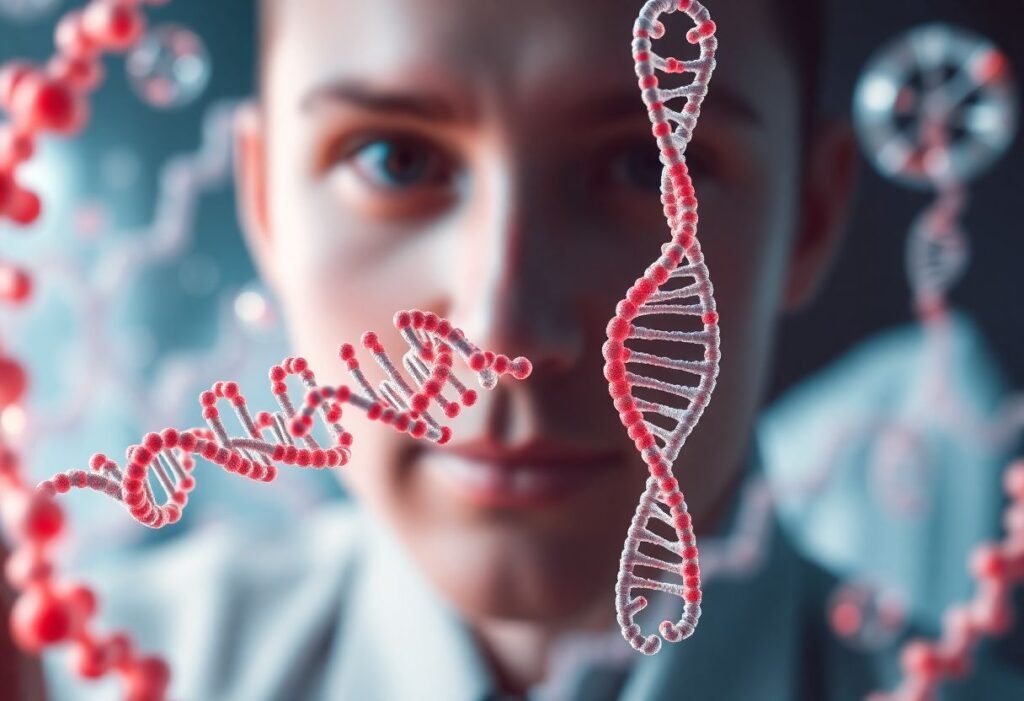Genetic engineering is revolutionizing the way we approach health and medicine. Thanks to innovative techniques, we can now alter genetic material to prevent diseases and enhance human health. This cutting-edge technology is not only opening doors to new treatments but also raising ethical questions and considerations in the realm of innovation.
The Role of Genetic Engineering in Modern Medicine
Genetic engineering plays a pivotal role in modern medicine, offering transformative approaches to diagnosing and treating illnesses. With the ability to manipulate DNA, scientists can develop targeted therapies for conditions that were previously deemed untreatable. These therapies aim at correcting genetic defects that lead to diseases, such as cystic fibrosis and sickle cell anemia. Advances in CRISPR technology have enabled precise modifications at the genetic level, making it possible to eliminate harmful mutations. This innovation not only holds promise for individual health but also for public health as it could reduce the burden of genetic disorders on healthcare systems.
Innovative Approaches to Disease Prevention
One of the most exciting facets of genetic engineering is its capacity for disease prevention. Through genetic modifications, scientists can create vaccines that provide immunity against various pathogens. For instance, researchers are working on genetically engineered vaccines for diseases like malaria and HIV, which have proved challenging to tackle due to their complex life cycles and variability. By employing innovative biotechnology, these vaccines can stimulate a robust immune response, potentially eradicating chronic infections that affect millions globally. This innovative shift in prevention strategies could significantly decrease healthcare costs associated with chronic diseases.
Personalized Medicine and Genetic Profiling
Personalized medicine is another breakthrough made possible through genetic engineering. This approach offers tailored treatments based on individual genetic makeups. By analyzing a patient’s genetic information, healthcare professionals can predict how they might respond to specific drugs, allowing for more effective treatments. This is particularly noteworthy in cancer therapy, where genetic profiling of tumors helps in choosing the right treatment plan. The shift towards personalized medicine signifies a major advancement in healthcare, signifying a transition from a ‘one-size-fits-all’ model to a more focused approach aimed at improving patient outcomes.
Ethical Implications and Considerations
While the benefits of genetic engineering are substantial, it is crucial to acknowledge the ethical considerations surrounding this technology. As we push the boundaries of genetic manipulation, concerns arise regarding designer babies, biological inequality, and the potential misuse of genetic information. Regulations and guidelines are necessary to ensure that genetic engineering is harnessed responsibly, prioritizing human dignity and safety. Ongoing discourse among scientists, ethicists, and policymakers will play a significant role in shaping the future of genetic engineering in human health.
Future Prospects and Innovations in Genetic Engineering
The future of genetic engineering is rife with possibilities. With continuous advancements in biotechnology, we can expect breakthroughs that enhance our ability to treat and prevent diseases. Emerging technologies, including gene therapy and synthetic biology, are set to reshape healthcare. Furthermore, the convergence of artificial intelligence with genetic engineering may enable us to analyze vast datasets, leading to more rapid discoveries and innovative treatments. As research expands, the impact of genetic engineering on human health will continue to evolve, presenting new opportunities for innovation and improved quality of life.
Conclusion and Disclaimer
Genetic engineering is a cornerstone of innovation in health, offering unprecedented avenues for disease treatment and prevention. However, with innovation comes responsibility. As we navigate the complexities of this technology, it is essential to balance advancements with ethical considerations to ensure its positive impact on society. This article provides a general overview and does not constitute medical advice; please consult a healthcare professional for personal health inquiries.





















